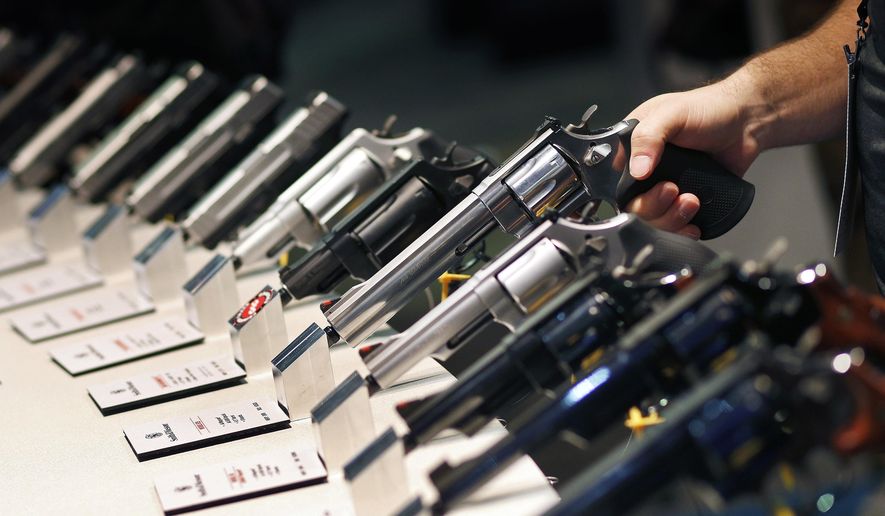Most attempts to illegally buy guns online fail, according to a study by federal investigators who found the internet serves as a small loophole for firearms purchases.
Federal agents posing as illegal gun buyers failed in nearly all of their dozens of attempts to purchase guns online, according to the multiyear study that tried to examine how current firearms laws could apply to purchases over the internet.
All 72 undercover attempts to buy guns through readily accessible internet sites failed, though agents did manage to make two buys out of sevens attempts through the more restrictive “dark web,” according to the recent report from the Government Accountability Office (GAO).
“Tests … demonstrated that private sellers GAO contacted on gun forums and other classified ads were unwilling to sell a firearm to an individual who appeared to be prohibited from possessing a firearm,” the report said.
In 56 cases, sellers ultimately refused the transactions, either because they wouldn’t ship a firearm or because they ended up nixing the transaction after an agent said they had been convicted of a felony or had other issues legally barring them from getting a gun.
In five of the cases, the investigators’ online accounts were eventually frozen by the participating websites and the 11 remaining attempts appeared to be scams, the report said.
The agents made the attempted buys after accessing online gun ads, focusing on private sellers who posted the ads and not federally licensed dealers who are required to run a background check for virtually every purchase, it said.
Current federal gun statutes don’t specifically address the internet as a venue for sales. But regardless of the transaction venue, people generally can’t sell or ship a gun to someone who they reasonably believe is banned from having one, or in the case of an unlicensed dealer if the buyer lives in a different state.
In addition to the “surface web” — the standard internet universe available to most online users — agents also probed the more restrictive “dark web” for potential transactions. That area of the internet often requires additional software and encryption tools, as well as alternative currency, as it’s frequently used to mask illegal or illicit activity.
Out of seven “dark web” purchase attempts, agents managed to buy an AR-15 semiautomatic rifle with the serial number “obliterated,” as well as a semiautomatic Uzi that was advertised as a fully automatic weapon. Those two cases were referred to other law enforcement agencies.
The broader investigation was conducted from July 2015 to November 2017, spanning parts of both the Obama and Trump administrations.
The Bureau of Alcohol, Tobacco, Firearms and Explosives (ATF) doesn’t specifically track internet-based firearms arrests, but reported more than 13,000 arrests from 2014-2016 for dealing guns without a license, illegally transferring guns between states, selling a gun to a banned individual, and illegally possessing a gun.
Eighty-nine percent of the defendants in those arrests received a conviction, the report said.
Investigators said the results were for illustrative purposes and not “generalizable” to broader conclusions, but advocates on both sides of the issue said elements of the report backed up their own views on the matter.
The study was cheered by gun-rights activists, who say depictions of the internet as a venue for virtually unregulated gun sales are overstated.
“This GAO study shows what we’ve already known — American gun owners are responsible people,” said Erich Pratt, executive director of Gun Owners of America.
But gun control advocates say the threat of illegal online buys is still real, and that agents could have unduly influenced their would-be sellers by making it clear upfront that they were banned in some way from buying guns.
“Above all, this report reaffirms that the illegal sale of firearms on the internet is a growing problem that can have devastating consequences,” said John Feinblatt, president of the group Everytown for Gun Safety.
• David Sherfinski can be reached at dsherfinski@washingtontimes.com.




Please read our comment policy before commenting.